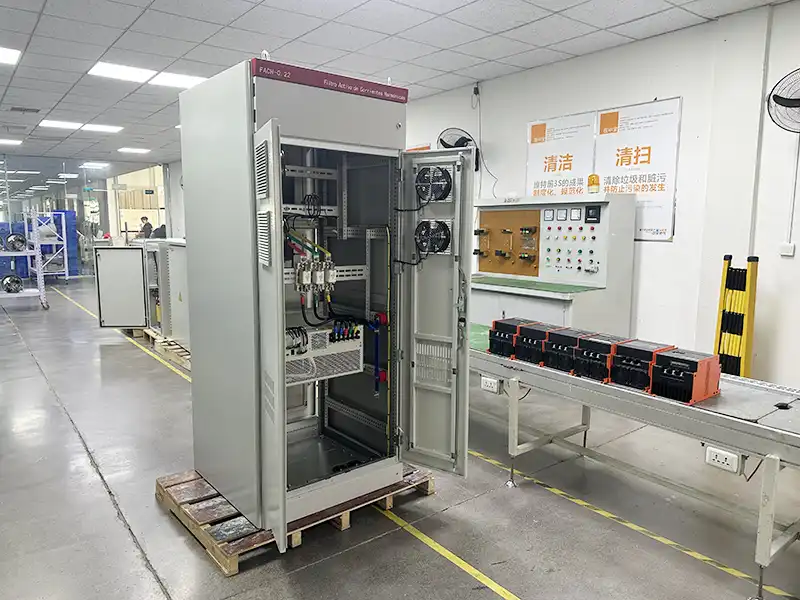With the widespread adoption of renewable energy, the share of photovoltaic (PV) power generation and energy storage systems in the power grid continues to grow, making power quality an increasingly critical issue. Active power filters (APFs), which play a key role in mitigating grid harmonic pollution, compensating for reactive power, and enhancing system stability, are being applied more frequently in PV and energy storage systems. Based on the fundamental principles and control strategies of APFs, this article examines their function and advantages in PV power generation and energy storage systems. Using practical examples, it also explores the future prospects of APFs in complex power systems.
Working Principle of Active Power Filters
Active power filters operate by detecting harmonic currents and reactive power in the grid in real time. They generate a compensation current equal in magnitude but opposite in phase, which is then injected into the system to cancel out harmonics and unbalanced components, thereby improving power quality.
Power Quality Challenges in PV and Energy Storage Systems
The inherent intermittency and variability of PV power generation and energy storage systems often lead to frequent power fluctuations, resulting in issues such as harmonic distortion and voltage instability. In typical PV energy storage setups, the inverter—the core component linking the PV generation unit to the grid—often produces significant harmonics due to its nonlinear operation. Without effective suppression, these harmonics can not only jeopardize the inverter’s own reliability but also disrupt the entire grid, leading to degraded power quality.
Moreover, PV systems frequently encounter challenges related to reactive power regulation. Fluctuations in power generation can cause sharp variations in reactive power, which not only reduce the efficiency of the PV system but also pose risks to grid security. Therefore, effectively addressing harmonic and reactive power compensation in PV systems is of great importance.

Application of APF in PV Energy Storage Systems
Active power filters offer an effective solution for enhancing power quality in PV and energy storage systems, with broad application potential. During the grid integration of a PV system, an APF can continuously monitor harmonics and reactive power, generate corresponding compensation signals, and inject them into the grid. This suppresses harmonics, compensates for reactive power, and improves the system’s power factor.
In practical applications, APFs are widely used in various settings, including PV power plants, energy storage systems, and industrial power grids. For instance, in large-scale PV energy storage plants, APFs effectively filter out high-order harmonics produced by inverters and provide real-time reactive power compensation. This enhances the overall efficiency of the plant and extends the service life of equipment. Another common example is in commercial building-integrated PV systems, where APFs help reduce grid-side power losses and improve the power factor by mitigating harmonic distortion and compensating for reactive power.
Integration of APF with Smart Grids
With the rapid advancement of smart grid technology, the role of APFs in PV energy storage systems is set to expand further. Smart grids require a higher degree of automation and intelligence in power system operation. By integrating with intelligent control systems, APFs can respond dynamically to real-time grid conditions, delivering more precise harmonic suppression and reactive power compensation.
Looking ahead, ongoing developments in artificial intelligence and big data will enable APFs to autonomously learn from historical data and dynamically adjust control parameters for optimized performance. In addition, the adoption of intelligent control algorithms will be a key direction for future APF development. Equipped with smart algorithms, APFs can implement more flexible control strategies, adapt to diverse application scenarios, and deliver stable power quality solutions under complex operating conditions. APFs will also be able to collaborate with other smart grid devices to help build a more efficient and reliable power network.



